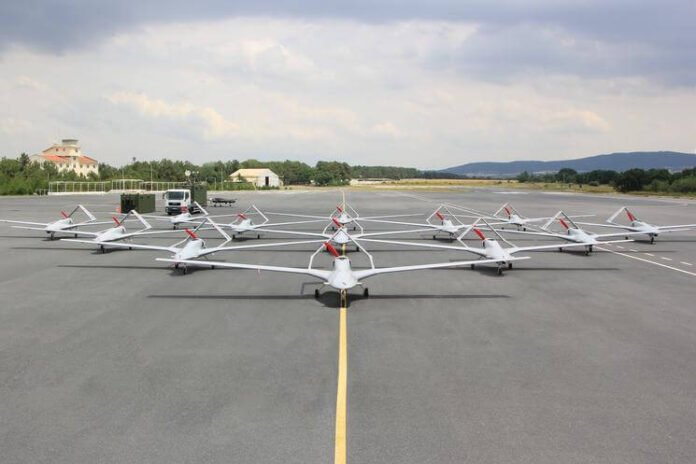As African militaries increasingly turn to drone warfare, Turkey has emerged as a dominant supplier, providing low-cost armed drones that are reshaping the region’s conflicts while raising concerns over civilian casualties and accountability.
The Bayraktar TB2, manufactured by Turkish defense contractor Baykar, headed by the son-in-law of President Recep Tayyip Erdoğan, has become one of the most sought-after combat drones in Africa. Along with the larger Akıncı model, the TB2 has outpaced Chinese-made drones like the Wing Loong in popularity across conflict zones.
Ankara’s drone exports have gained traction in part because, unlike Western nations, Turkey imposes no human rights-related conditions on military sales, according to Djenabou Cisse, a West Africa security expert with the Foundation for Strategic Research.
“It’s essentially at the president’s discretion,” said Batu Coşkun, a researcher at the Sediq Institute in Tripoli, noting that Turkey’s arms exports are largely unencumbered by the bureaucratic controls common in Europe and the United States.
Turkey’s drone footprint expands across Africa
Nations including Mali, Burkina Faso, Niger and Chad have turned to Turkish drones amid worsening security situations and deteriorating ties with former colonial power France.
In Mali Turkish drones have been credited with helping the military recapture the northern city of Kidal in November 2023 and eliminating members of the separatist Azawad Liberation Front in a December airstrike.
In Chad Turkish drones have replaced French fighter jets at forward bases vacated after N’Djamena ended its military cooperation with France in late 2024. Turkish technical personnel remain on-site to assist, though there is no formal military cooperation agreement, only a commercial deal for equipment.
Military officers from multiple countries praise Turkey’s fast, flexible and low-cost delivery, noting that Turkish drones are easy to operate and require minimal training.
“With Turkey, we have a speed we don’t have elsewhere, not even in Russia or China,” a senior Malian officer told Agence France-Presse on condition of anonymity.
A foreign policy tool
Beyond economic opportunity, Turkey’s drone exports are seen as a core element of its foreign policy strategy.
“The TB2 is now an integral part of Turkey’s foreign policy, whose strategy is to export its military products worldwide,” Coşkun said.
Turkey’s drone diplomacy began with its support for the UN-recognized Government of National Accord in Libya in 2019, where Bayraktar TB2s were deployed against forces loyal to eastern commander Khalifa Haftar, who was backed by the UAE and equipped with Chinese drones.
The TB2’s success in Nagorno-Karabakh (2020) and Ukraine (2022) further bolstered its reputation and international demand, leading to a surge in orders, despite the system’s limited range of 150 kilometers and relatively average technical performance.
Still, its affordability, a three-drone system costs an estimated $6 million, far less than the cost of a single fighter jet, makes it an attractive choice for low and middle-income nations seeking tactical airpower.
Drones developed by Baykar have been exported to at least 35 countries so far. Many say the company owes its success to President Erdoğan, who personally promotes Baykar drones during his visits to foreign countries, as a result of which agreements worth of millions of dollars are signed.
Baykar ranks among Turkey’s top 10 exporters across all industries. According to the Center for a New American Security, Turkey produces 65 percent of global UAV exports, with Baykar representing about 60 percent of Turkey’s share. The company exports more than 90 percent of its products to 35 countries.
Concerns over civilian harm and accountability
Despite its growing presence, Turkey’s drone exports have drawn criticism from human rights groups and analysts who warn of civilian harm and lack of oversight in conflict zones such as Ethiopia, Sudan and Burkina Faso.
In Ethiopia, where both Turkish and Chinese drones are used, dozens of civilians were killed in an April strike on a school in Gedeb during Easter celebrations. Experts suggest a lack of operator training or deliberate disregard for targeting protocols may be to blame.
“The drones continued to target civilians despite the presence of sophisticated sensor systems, high-definition cameras and night vision,” said Wim Zwijnenburg, a drone warfare expert with the Dutch group PAX.
As Turkey deepens its security ties with African governments, analysts warn that its growing influence risks enabling unregulated warfare, with devastating consequences for civilians and little external accountability.
© Agence France-Presse with Turkish Minute















